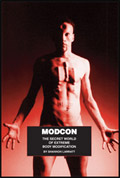So yesterday a friend asked me, “what couldn't you live without?”
I thought about it for a minute, and couldn't think of anything. Don't get me wrong — I don't really want to lose anything, but there's nothing I couldn't lose. He asked me if that applied to my computer — I said sure, if you can find me a job. Hell, if I could maintain a decent quality of life for the folks who rely on me, I'd make the trade in a second! He asked me if it applied to people, which is harder, because obviously I don't want anything bad to happen to anyone I know, and I'd like to continue knowing them. However, it's true there as well.
The fact is that you will eventually lose every single thing you have. You will lose every single person that's dear to you. Even if you live your life “perfectly”, you will eventually die and the people and things around you will die. Whether you fight it or not, everything you love will be taken from you in time. So enjoy it while you've got it, because it won't last. All you have are moments in time that are gone an instant after you experience thtem. All ships are sinking ships (some just take longer than others), so really, if the band's still playing, keep dancing until you drown I figure? Assuming there are no free lifeboats.
Lifeboat = almost always better than drowning!
I read this story about dirt bacteria co-evolving with humans into an anti-depressant and thought it was funny because I've been telling people lately that I really want to move somewhere where I can safely eat the dirt. If I remember right, something like 90% of the biomass on the planet are various forms of soil biota, which we probably understand even less than the oceans, and they're far more deeply integrated into our day-to-day experience than other imperceptible life… I wonder if this dark era that's been evolving (where depression is chic) over the last four hundred years is actually just a byproduct of environmental damage?
Along those lines, I saw another story about declining fertility rates, but in this case, more women being born than men (from plastics, smoking, etc.). Men already produce half as much sperm as they did fifty years ago. Because male-producing sperm are weaker than female-producing sperm (which are slower, but far stronger), I think we'll see not only less and less children being born in general, but specifically fewer and fewer men. I don't know if I agree with various “grim visions” being floated around, because I think that we'll destroy ourselves before we destroy the Earth — or at least reduce our numbers enough to let the Earth recover while we reconsider how we've been running things.
Maybe I'm just saying that because I'm all weirded out by my heart pausing every fifteen minutes or because I can't remember stuff anyway so I try not to get attatched, but I do think it's true. That said, I don't think people should really think about it, because it's pointless to stress over anything you can't change, and you can't change the fact that your experiences on this world are finite (short of the singularity coming true that is — and I think that our deep environmental integration will make “downloading” or otherwise digitizing our essence much more difficult than expected).
I think I've done some fairly big things and been involved in pretty cool projects… but I've got to admit that when I watch Trailer Park Boys I really think to myself that I could be really happy on $17 a day, selling stolen meat in a parking lot, growing dope, and living in a car! Hahaha, if only I didn't have all these responsibilities that make that impossible.
Links that will be very interesting for nerdy folks:
- Mixed Feelings – a good article on sensory augmentation (a la magnetic implants and so on).
- Spelling Correction – some ideas on using probability to write a spell checker (rather than doing missing-letter analysis and things like that).
- Pictures Posing Questions – taking photos using unusual lighting (flashes from all directions in different color tones for example to create an image that can be post processed into any lighting setup, etc.) or with extra data (with surrounding mirrors so 3D data can be captured, etc.) and so in to give broader post-processing options.
The last article, especially if you couple it with ideas from the first two (which talk about new ways to interpret and use large datasets or unusual data overlays), is very interesting and I think will make some people think about a ton of other concepts (because the same concepts could be applied to audio processing and more).



Post a Comment